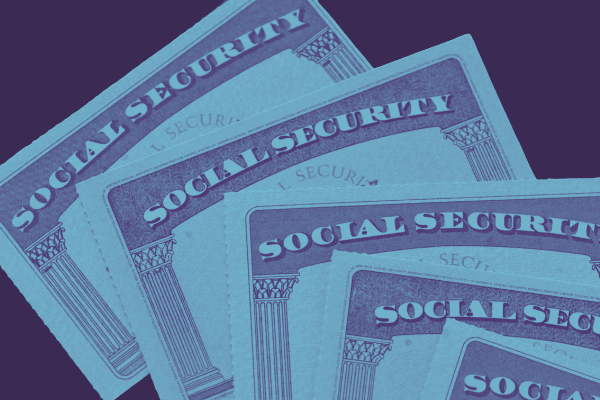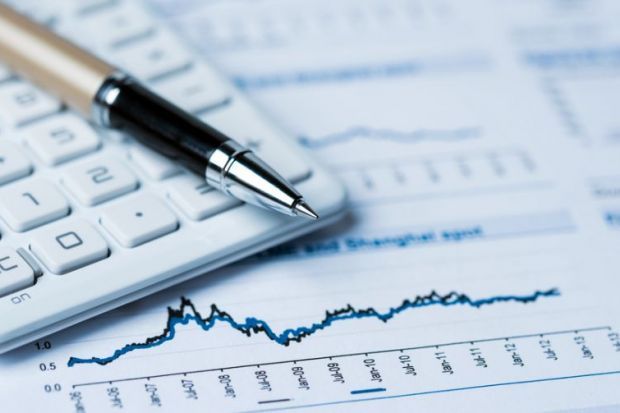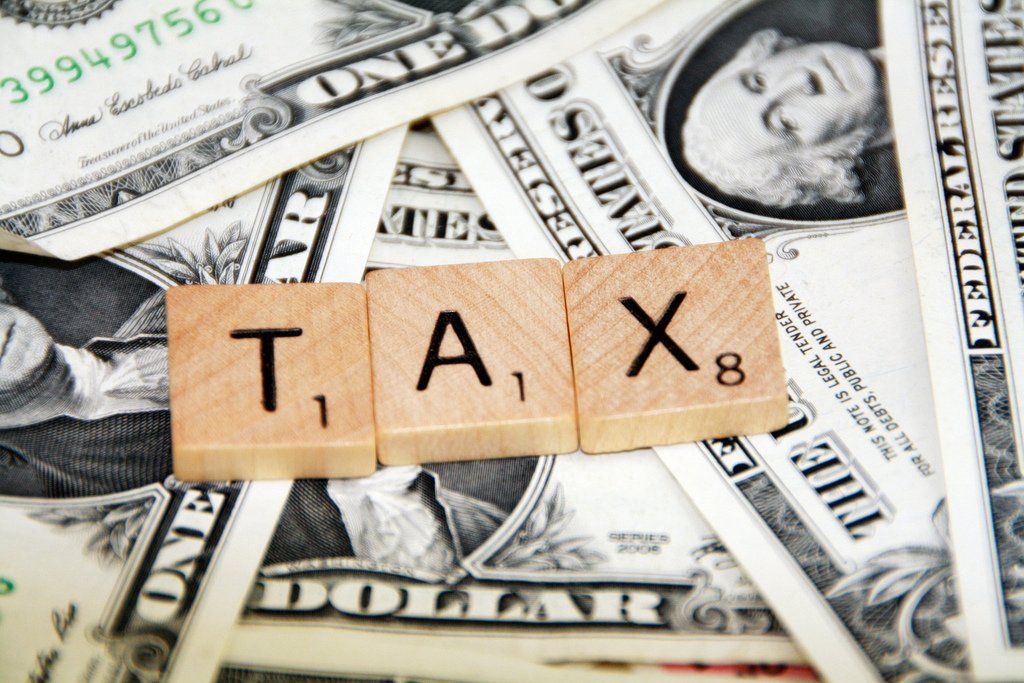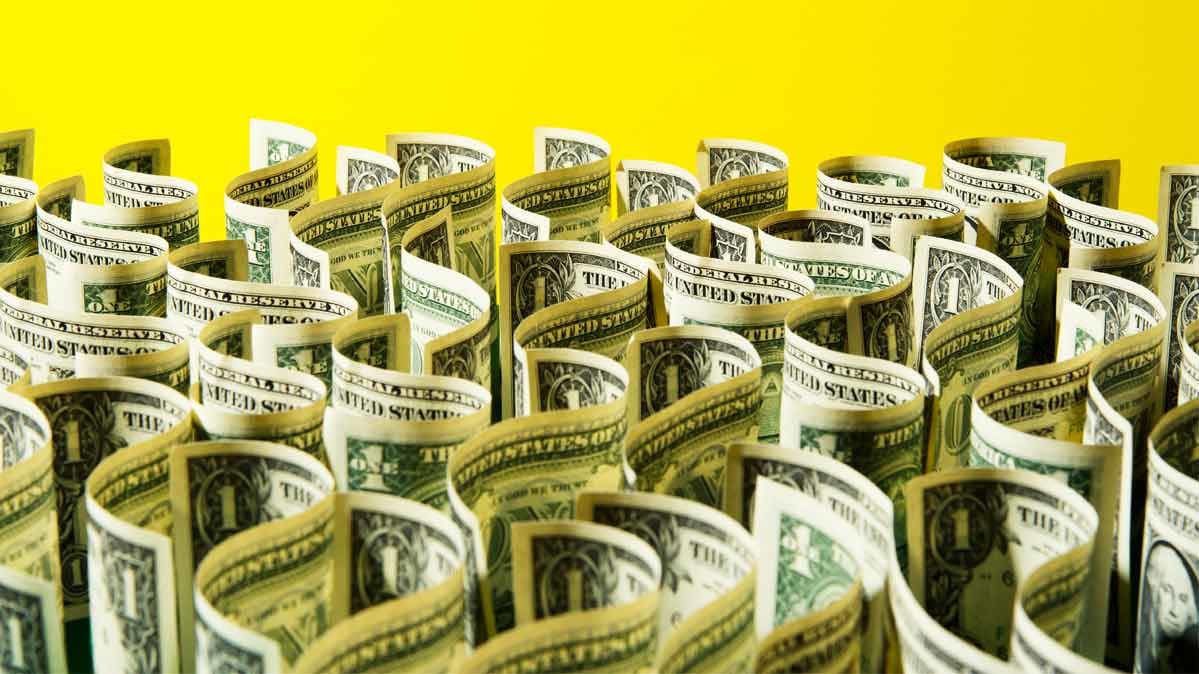Blog Layout
Someone is Making Money Off Your Cash, Is it You?
Eric Sajdak • Mar 06, 2020
Did you know that Americans hold more money in cash than the entire value of the New York Stock Exchange (NYSE)?
We all invest in cash to some extent and for obvious reasons. We all keep a certain amount of money in our checking and savings accounts in order to pay ongoing and foreseeable expenses.
In today's market environment, we often see retirees keeping higher levels of cash to "protect" against market losses. Statistically and historically, this has been a losing proposition, but we'll save that for another article.
In this article, we are going to explore how not all cash is created equal and how, in this new era of low fees, companies are finding "hidden" ways to make money off you.
Note: As a broad rule for cash and cash equivalents, given the same level of safety, an investor should be searching for the highest yield. For example, two banks offer FDIC insured money market funds. Bank A is at 0.25%, while Bank B offers a 1% rate. In this simple example, Bank B makes more sense to park your cash.
The "Low-Interest" Fee
In recent decades, the investment industry has seen fees across the board fall. You can now invest in index funds for <0.05% per year. Mutual fund costs have cut by 25% in the past two decades. Custodians like Charles Schwab and TD Ameritrade offer commission-free transactions. It has never been cheaper to invest your money! Or has it...?
During this war on fees, companies and advisors are finding hidden ways to earn fees. One of those ways is through the yield on cash.
For example, two weeks ago, we performed an investment audit for a prospective client. The client had roughly $40,000 in cash across various investment accounts. Their current advisor worked for a wirehouse firm (owned by a larger bank) and put that $40,000 in that bank's money market account. This low yielding cash account was earning 0.22% even though any reasonable money market account at the time is earning closer to 1% and above.
Furthermore, the client was getting charged 1.20% per year on top of this!
So why would this advisor put $40,000 of this client's money into a lower-yielding cash account?
The bank was earning a higher interest rate on that money, paying the client a lower interest rate, and keeping the spread. Is this fiduciary? Of course not. Yet it happens all the time.
How big of an impact will this have on this particular retiree?
From the start, this client was losing money. On that $40,000, they were earning 0.22% and paying their advisor 1.20%. Right off the bat, they were directly losing 1% per year. Not to mention the indirect costs. In 2019, inflation was 2.30%. Then the opportunity cost. They should be earning upwards of 1% on their cash. In total, they were losing 3.30% ($1,320) per year on that $40,000.
Unfortunately, this is becoming a trend more so than a one-off event in recent years. As companies lower fees, they aren't just accepting the revenue hit. They are finding other ways to make their money.
How Custodians Are Making Money
We have been huge fans of custodians like Charles Schwab and TD Ameritrade moving their platforms to commission-free. In the 90s, it cost investors $40 to place a stock transaction!
Once again, custodians aren't merely taking the revenue hit on the chin but instead finding other ways to make money.
Similar to the example above, one of the most significant sources of revenue for custodians currently is... interest income. Custodians are taking the money in cash and money market accounts, earning interest on that money, and only transferring a fraction of that interest to you the investor. They pocket the rest.
Does this mean retirees should avoid these custodians? Of course not. They offer a massive advantage to investors. Instead, retirees need to be aware of this hidden fee and do everything they can to minimize and avoid it.
Author Disclosure: We custody our clients at Charles Schwab. However, we pride ourselves on keeping low cash balances and avoiding cash drag. In a sense, we are taking advantage of a commission-free platform without our client's paying the "hidden" fees.
Cash in Mutual Funds
When we invest, we expect our money to... well, be invested.
For a long time, we have been critical of mutual funds for a plethora of reasons.One of those reasons is something called cash drag. Cash drag is the drag on your investments from money held in cash when it isn't supposed to be.
For example, one of the most popular mutual funds of all time is American Fund's Growth Fund of America (AGTHX). It charges 0.65% per year to invest your money. Given the name Growth Fund of America, you would expect that if you put $1,000 in this fund, AGTHX invests that $1,000 for growth on your behalf. After all, that is why you are paying them 0.65% per year.
Yet, if we pull this fund up, we see 4.69% of our money is sitting in cash. Historically, the Growth Fund of America has kept 3-10% of its fund in cash/cash equivalents. This is money you are paying a fee that isn't working on your behalf.
But where is that cash invested?
The majority is invested in American Fund's Central Cash Fund. This begs the question, is this simply an additional avenue for American Funds to increase their revenue (i.e., they earn an interest spread on the cash)?
The situation described above isn't unique to just one mutual fund company or one specific fund. Across the board, we see too many mutual funds carrying too much cash. Often, the amount of cash held in mutual funds comes as a surprise to retirees.
How To Avoid The Cash Fee
The problems described above are frequent. Of the retirement plans I work on each week, roughly 85% of prospective clients are losing money to one or more of the issues above.
The good news? The remedying of these problems are straightforward.
First, if you are going to hold cash for an extended time, keep it in higher-yielding accounts and don't pay a fee to hold cash. Right now, Ally Bank's savings accounts are earning 1.60% per year and are FDIC insured. Ally is one of many companies offering a reasonably high yield.
Second, make sure the money you are investing is going to work for you. The case for investing in mutual funds is thin, at best. Index mutual funds, like Vanguard's VTSAX, hold less than a percent in cash. Even better would be holding Exchange Traded Funds (ETFs). On average, they are significantly cheaper and hold extremely low cash reserves.
Retirement planning at the end of the day is a game of inches. However, because of compound interest, over time, those inches add up to miles.

By Eric Sajdak, ChFC®
•
07 Jul, 2020
"If I delay my Social Security benefit, at what age would I breakeven versus simply filing at 62?" We field this type of question frequently from retirees. The Social Security system allows you to file anytime between 62 and age 70. At first glance, filing at 62 seems to make the most sense. After all, there are 12 months in a year and eight years between ages 62 and 70—That's 96 months of monthly paychecks that you wouldn't be getting if you delayed. However, you get penalized for taking your benefit early. Below is a diagram showing the penalties and delayed credits for someone whose Full Retirement Age is 66:

By Tony Hellenbrand
•
30 Jun, 2020
Lately I’ve been getting asked how I was able to “Call the Bottom” in late March. I want to make something clear: I didn’t. If you go back and look at the article from March 16th or read the email I sent out to subscribers on the 26th, (pure dumb luck), I ran a bad case, a best case, and a base case valuation on the S&P 500. I arrived at a base case valuation of 2,950, and at the time the S&P was hovering around 2,300, so we started recommending clients initiate buying plans. These plans did not mean “This is the bottom” or “Go all in.” Far from it. Many of our clients were buying several days before the precise bottom, and several days and weeks after. Regardless of how clearly I try to make this point (that we simply were buying something the math said was likely cheap) this morning my inbox is chock full of people asking what I think about valuations now. Are we in a bubble? Is the market ahead of the fundamentals? Are we going to double dip? Will the market crash? Will we need a second stimulus? Maybe. I have no idea. Here’s what I know, when you accumulate all of the available earnings estimates and make a conservative estimate of fair value, you end up with a fair value of about 3,060 on the S&P 500. As I type this we sit at 3,080. Regardless of whether the number is 2,950 or 3,060 or 3,080 or 3,150, any way you slice it, we’re at fair value, now. Analyst Earnings Estimates:

By Eric Sajdak
•
28 May, 2020
It is your right as an American to (legally) pay the least amount in taxes that you owe—nothing more, nothing less. But in recent years, Congress has made a concerted effort to shift the IRS code and levy you with taxes you didn't even know you were paying. We call these "Stealth Taxes." These changes are never talked about by your congressman (or woman). They lie deep within the tax code and can potentially cost you significantly unless you learn about how to avoid them. In this article, we cover three of those "Stealth Taxes" and what you can do to minimize or avoid them altogether.
Contact Our Team
By using this website, you understand the information being presented is provided for informational purposes only and agree to our Terms of Use and Privacy Policy. Safeguard Wealth Management relies on information from various sources believed to be reliable, including clients and third parties, but cannot guarantee the accuracy and completeness of that information. Nothing in this communication should be construed as an offer, recommendation, or solicitation to buy or sell any security. Additionally, Safeguard Wealth Management or its affiliates do not provide tax advice and investors are encouraged to consult with their personal tax advisors.
All investing involves risk, including the possible loss of money you invest, and past performance does not guarantee future performance. Historical returns, expected returns, and probability projections are provided for informational and illustrative purposes, and may not reflect actual future performance. Please see our Full Disclosure for important details.
Safeguard Wealth Management is a Registered Investment Advisor with the SEC.




